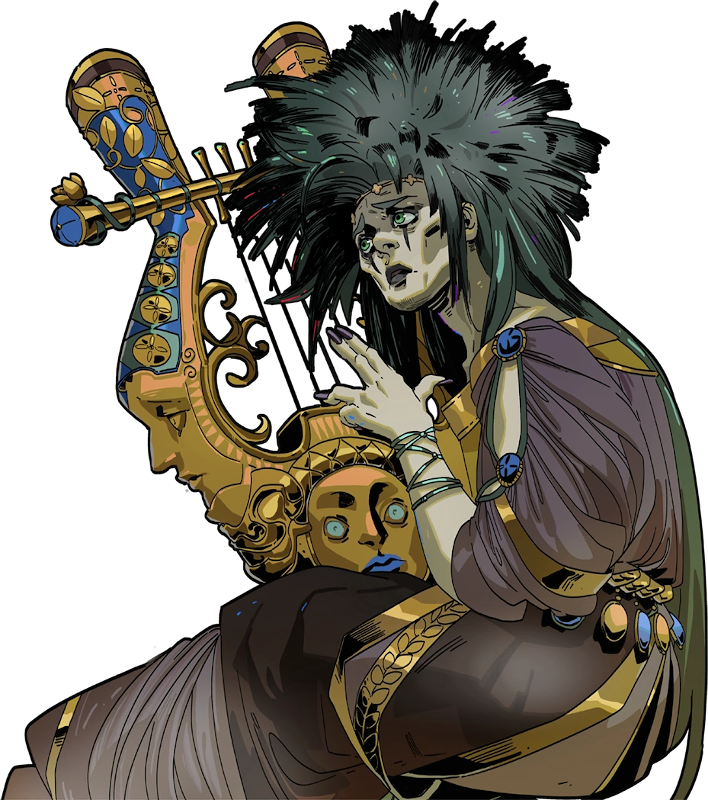

Also, having Orpheus' song that he's been working on to bring Spring back as the way to inspire compassion from Hades, and Hades' decision on if he'll let Eurydice leave Hadestown, is a nice touch. Those changes provide a nifty reason for Eurydice to decide to leave the barren world above ground to go with Hades. Hades also draws his wife Persephone back to Hadestown earlier than usual which, along with the effects of the fracking, forces the climate above ground to change and for summer to end sooner than usual. president, even though the song was written years before 2016. He also spouts off about how he built a wall to keep out the poor, which is eerily reminiscent of the rants of a certain former U.S. Hades has now turned the underworld into his own self-titled town where he controls workers to frack the ground for oil and other natural resources. They've updated the son of a muse Orpheus' choice of musical instrument from lyre to electric guitar and instead of dying by a snakebite on her wedding day, Eurydice is drawn by Hades' offer for a train ticket to Hadestown where she's promised she will find warmth and sustenance.

The creators clearly took a lot of liberties with the material. With Hermes (understudy Eddie Noel Rodríguez at the performance I attended) serving as narrator, the basic plot sticks fairly close to the main plot points of the Orpheus and Eurydice myth, while changing the local to a timeless world reminiscent somewhat of a dystopian New Orleans, with the gorgeous and driving jazz-infused score by Anaïs Mitchell tying into this locale. As Orpheus attempts to find her and bring her back to the surface, the story intersects with the myth of Hades (Kevyn Morrow), a tyrant who oversees the underworld, and his wife Persephone (Kimberly Marable). The story of the penniless poet and musician Orpheus (Nicholas Barasch) and the cold and hungry Eurydice (Morgan Siobhan Green) centers on the deep love the two characters have as soon as they meet and what happens after Eurydice is drawn to the Underworld in hope of a better life. While the intimacy of the story is somewhat lost in the large ASU Gammage venue, and the plot leaves a little to be desired and could be fleshed out more, the touring cast excel in delivering a vibrant production which is in town through this Sunday. The Tony-winning Best Musical Hadestown is the latest stage adaptation of the famous story, but for this modern retelling, co-creators Anaïs Mitchell and Rachel Chavkin intertwine the doomed love story of Orpheus and Eurydice with the myth of Hades and Persephone into a cautionary tale about love and sacrifice, set above and in the desolate underworld.


The Greek myth of Orpheus and Eurydice has inspired dozens of stage, screen, and literary adaptations, including the well-known movies Black Orpheus and Moulin Rouge, the plays Metamorphoses and Eurydice, and the opera Orpheus in the Underworld. Also see Gil's review of A Gentleman's Guide to Love & Murder


 0 kommentar(er)
0 kommentar(er)
